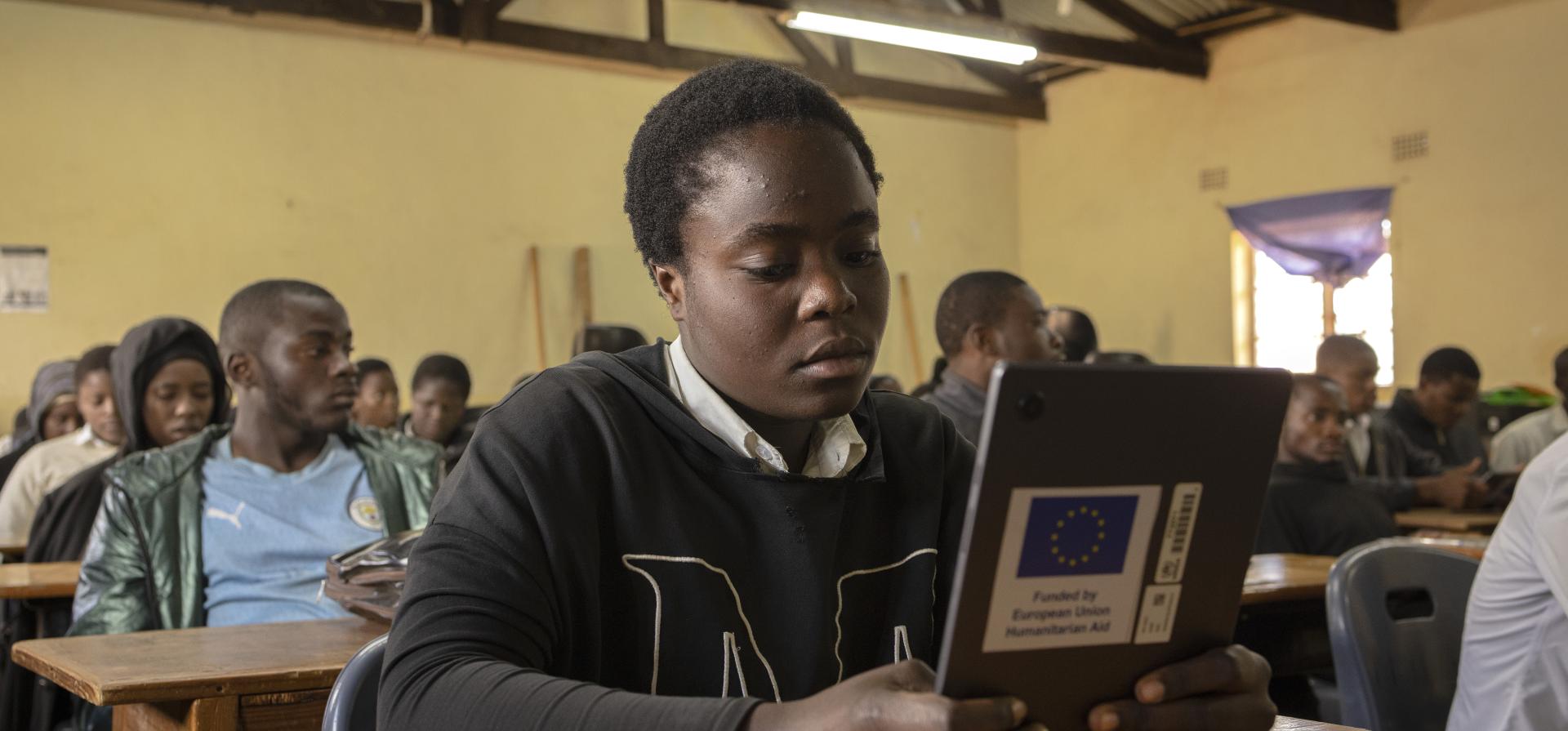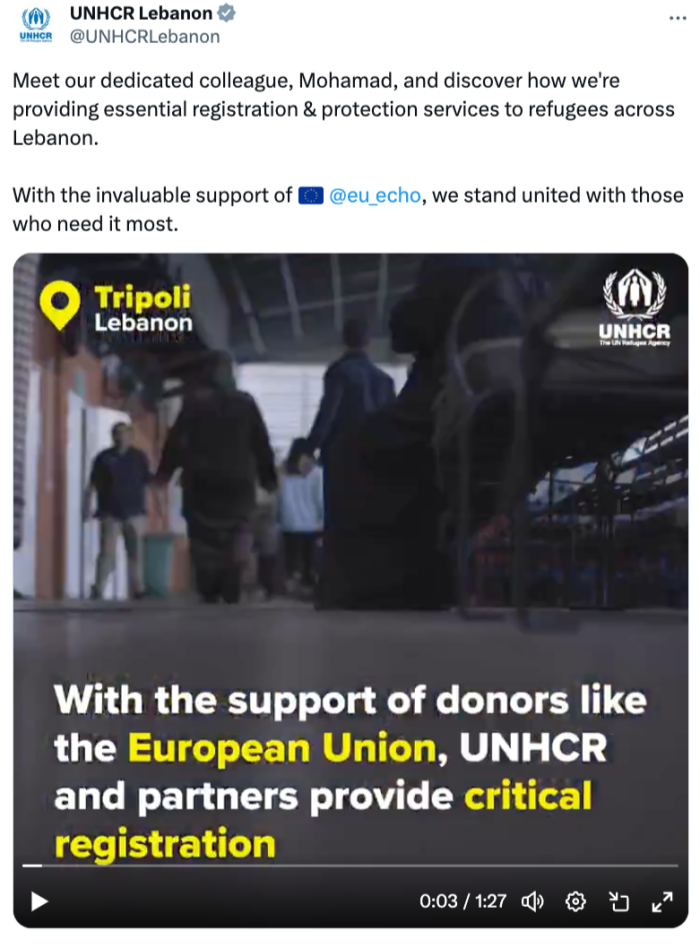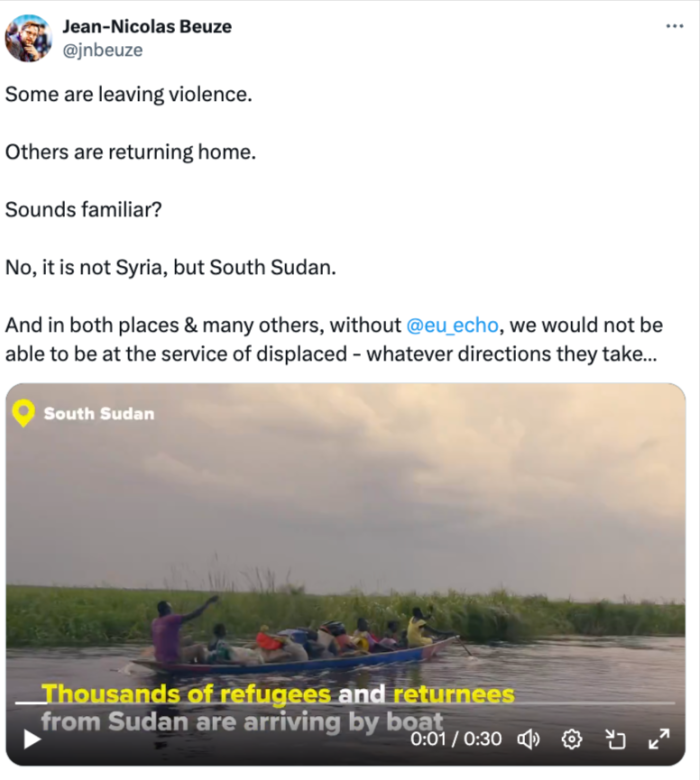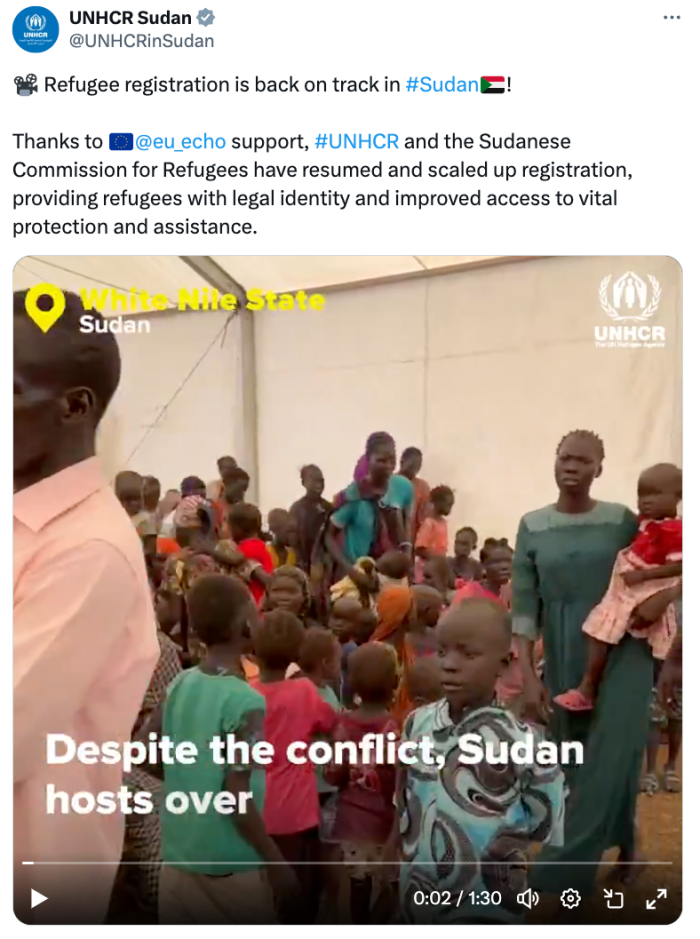With spiralling crises and conflicts around the globe resulting in record numbers of forcibly displaced people, UNHCR is relying on steadfast partnerships more than ever. One of UNHCR’s key partners is the European Commission.
The European Commission has been among UNHCR’s top three donors globally for the past several years, with recent contributions proving crucial to the organization’s work in Ukraine and its neighbors, as well as in countries such as Syria, Myanmar, and Afghanistan that continue to grapple with longstanding crises.
The European Commission’s vital contribution enables UNHCR to carry out its mandate to protect, assist, and seek solutions for refugees, internally displaced and stateless persons globally. The European Commission invests in projects that respond to the full cycle of displacement, from lifesaving aid to local integration, as well as voluntary return and resettlement programs.
For example, the European Commission’s funds allow UNHCR to provide crucial support to the most vulnerable Syrian refugees in Lebanon through cash assistance programming. Such programs help refugees meet their most pressing basic needs, allowing them to pay for essentials such as food, water, healthcare, and rent, while also fostering autonomy and self-reliance.
The European Commission’s commitment to the Global Compact on Refugees, and to fostering the humanitarian, development, and peace nexus, has made it a key partner with refugee host countries, most of them being low- and middle-income nations. It is the top donor to UNHCR's mid- and long-term responses to protracted crises, having set a tentative spending target of 10 per cent of its €80 billion development instrument to respond to migration and forced displacement around the globe. Drawing on widespread presence and expertise in the field, UNHCR’s partnership with the European Commission allows for effective engagement on joint priorities and ensuring that multi-dimensional responses are rooted in unique country contexts.
In 2024, the European Commission contributed a total of US$ 270.6 million tightly earmarked funds to UNHCR. This support was key not only to UNHCR’s emergency response but was also used to help fund solutions to protracted situations that have long since fallen out of the headlines.
The impact of the European Union as a donor
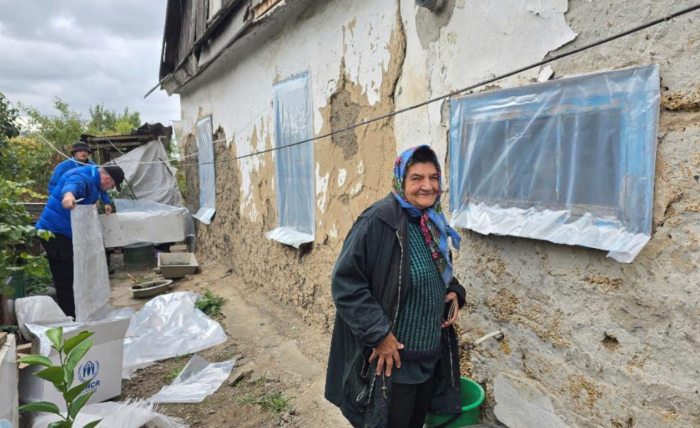
The European Union provides additional funding to UNHCR to help Ukrainians get through the harsh winter
As winter is now setting in across Ukraine, the European Union has contributed an additional € 26,4 million to support the crucial winter response that UNHCR, the UN Refugee Agency, is already rolling out country-wide.
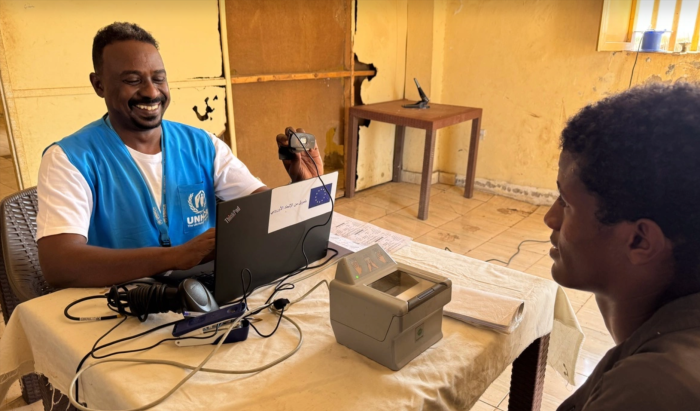
UNHCR scales up refugee registration in Sudan with EU support, despite conflict
Haile, 62, has been a registered refugee in Sudan since 2003 and lived in the capital Khartoum. When conflict broke out in Sudan in April 2023, Haile, who fled Humera in Tigray region of Ethiopia over 20 years ago in search of safety, was once again forced to flee his home.
